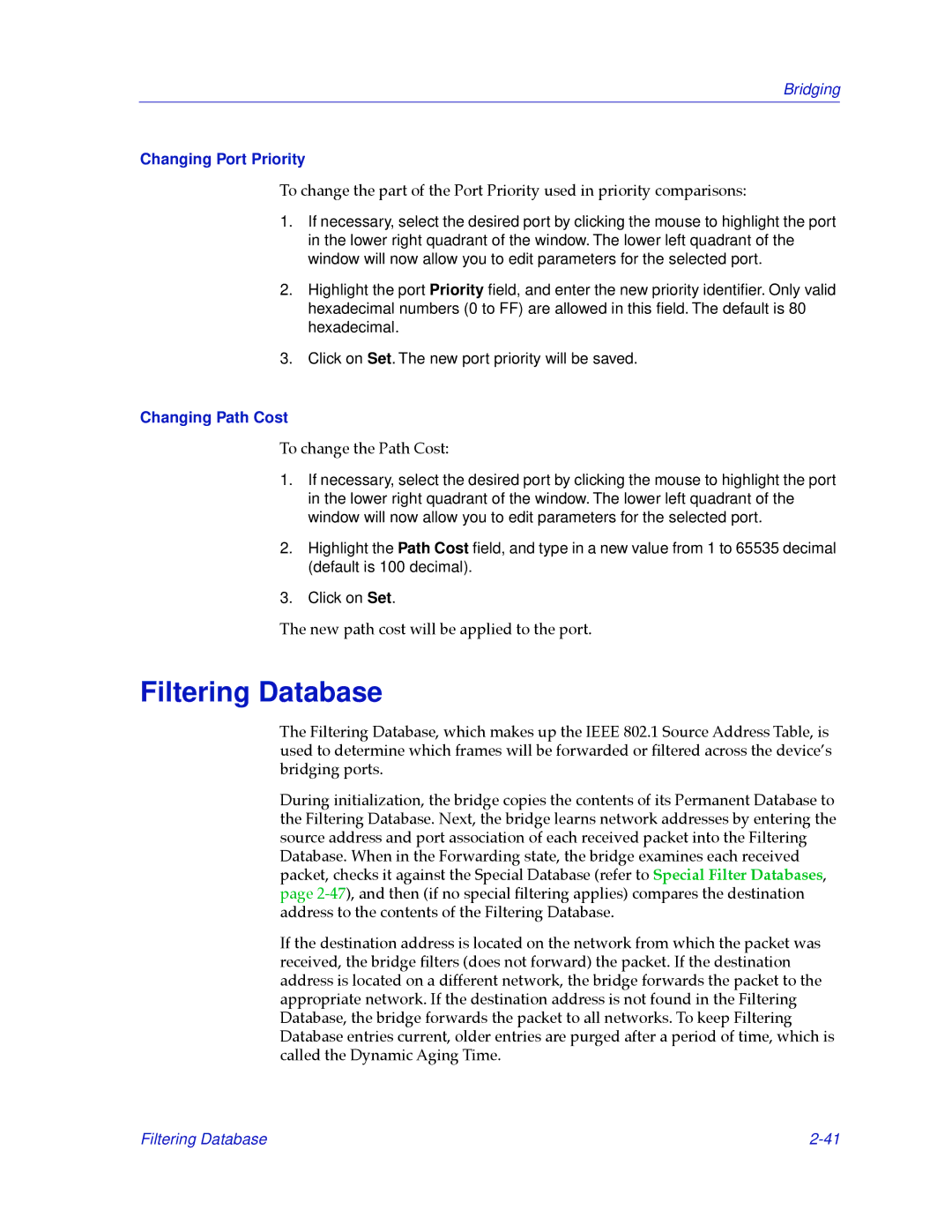Bridging
Changing Port Priority
To change the part of the Port Priority used in priority comparisons:
1.If necessary, select the desired port by clicking the mouse to highlight the port in the lower right quadrant of the window. The lower left quadrant of the window will now allow you to edit parameters for the selected port.
2.Highlight the port Priority field, and enter the new priority identifier. Only valid hexadecimal numbers (0 to FF) are allowed in this field. The default is 80 hexadecimal.
3.Click on Set. The new port priority will be saved.
Changing Path Cost
To change the Path Cost:
1.If necessary, select the desired port by clicking the mouse to highlight the port in the lower right quadrant of the window. The lower left quadrant of the window will now allow you to edit parameters for the selected port.
2.Highlight the Path Cost field, and type in a new value from 1 to 65535 decimal (default is 100 decimal).
3.Click on Set.
The new path cost will be applied to the port.
Filtering Database
The Filtering Database, which makes up the IEEE 802.1 Source Address Table, is used to determine which frames will be forwarded or Þltered across the deviceÕs bridging ports.
During initialization, the bridge copies the contents of its Permanent Database to the Filtering Database. Next, the bridge learns network addresses by entering the source address and port association of each received packet into the Filtering Database. When in the Forwarding state, the bridge examines each received packet, checks it against the Special Database (refer to Special Filter Databases, page
If the destination address is located on the network from which the packet was received, the bridge Þlters (does not forward) the packet. If the destination address is located on a different network, the bridge forwards the packet to the appropriate network. If the destination address is not found in the Filtering Database, the bridge forwards the packet to all networks. To keep Filtering Database entries current, older entries are purged after a period of time, which is called the Dynamic Aging Time.
Filtering Database |
